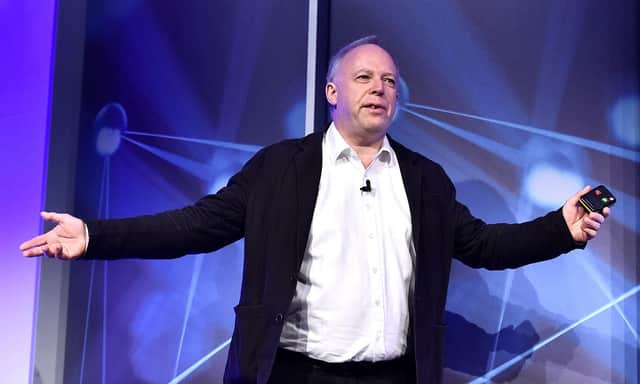Let’s engineer more beneficial ways of working - comment


Our ancestors stopped working from dawn to dark on the family farm for subsistence and moved into the mills, mines and factories, where they were at least paid and sheltered from the weather. They had to move into the mills because that was where the machines were. Clerks worked in counting houses because that was where the ledgers were, and later when mechanical calculators and typewriters were invented, administration staff needed access to those.
Command and control structures were borrowed from the military, and proximity was required because message runners were the only way of communicating. Silence was the order of the day in the counting houses, and the noise levels in factories precluded conversation. What was necessity became habit and is still how most people work. Well, everything except for the silence.
Advertisement
Hide AdAdvertisement
Hide AdThe military have long abandoned rigid command structures, empowering field forces to make immediate decisions based on current conditions, yet most companies retain rigid structures and reserve decision-making for a specific echelon. Since most office workers can carry their equipment with them, they no longer need to be in an office to use it.
Recent research has found that 37 per cent of all jobs and 50 per cent of urban jobs can be done from home, as many organisations have been forced to discover during the pandemic. When survival becomes the imperative, instead of ego gratification, agility becomes key – as many companies have discovered.
It is important to focus on what has been learned during this period of survival as we tentatively look towards restarting broader economic activity. Many things once unthinkable have proven to be effective and we must capitalise on these rather than rushing back to an increasingly unsustainable status quo. More important than the kinks of remote working is learning how decision-making happened in those moments of crisis.
The key takeaway from this decision-making should be the importance of trust. Modern business practices have tended to diminish its importance, if not downright eliminate it. The term “human resources” shows how trustworthy large firm consider their staff.
Rebuilding trust
Many managers have found it extremely stressful when they cannot see their staff beavering away at a desk. Modern management is uncomfortably close to those old counting houses, with the supervisor literally overseeing the clerks. Now is the time to rebuild trust such that managers and their reports learn to believe that they are all working together, rather than having to prove it.
While measuring output is a fabulously unobtrusive way of monitoring work, the idea of having regular check-ins between managers and staff helps build a human profile on both sides. Trust grows when each party discovers that they are both humans rather than “the boss” or “a resource”. Discovering what everyone’s work-from-home setup looks like and the wonderful intrusions by small children helps humanise working relationships.
These new relationships are accelerating the challenge to our manager-obsessed culture. Organisations need management but do not need managers. Management should be considered an integral part of how work gets done, not an end in itself. While the concept of holacracy – a type of decentralised governance – is probably a step too far, too soon for traditional organisations, firms need to move towards building teams around outcomes, and staffed with balanced sets of hard and soft skills rather than filling holes in a rigid org chart.
Measurement and direction become much simpler when teams are directed by business outcomes, giving everyone genuine objectives. The pandemic is both testing our mettle and letting us stand back and look at how we operate. Take the time to learn and try not to return to how things were before.
Richard M Marshall, principal, Concept Gap
A message from the Editor:
Advertisement
Hide AdAdvertisement
Hide AdThank you for reading this story on our website. While I have your attention, I also have an important request to make of you.
The dramatic events of 2020 are having a major impact on many of our advertisers - and consequently the revenue we receive. We are now more reliant than ever on you taking out a digital subscription to support our journalism.
Subscribe to scotsman.com and enjoy unlimited access to Scottish news and information online and on our app. Visit https://www.scotsman.com/subscriptions now to sign up. By supporting us, we are able to support you in providing trusted, fact-checked content for this website.
Joy Yates
Editorial Director
Comments
Want to join the conversation? Please or to comment on this article.